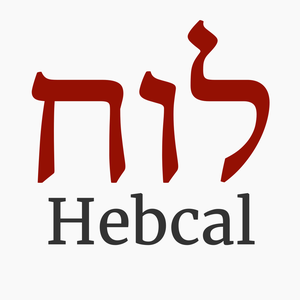Your comments
Thanks for your patience. Fast start and end times are now provided for major fast (Tish’a B’Av) and minor fasts (Ta’anit Esther, Tzom Gedaliah, Tzom Tammuz, Asara B’Tevet, & Ta’anit Bechorot). Minor fasts begin at alot hashachar (when the sun is 16.1° below the horizon in the morning) and end when 3 medium-sized stars are observable in the night sky (when the sun is 7.083° below the horizon in the evening). Tish’a B’Av fast begins at sundown and ends when 3 medium-sized stars are observable.
Hi, we've started working on an experimental Zmanim iCalendar feed. We'd love your feedback.
The basic format of the feeds is this:
webcal://download.hebcal.com/zmanim?zip=02906
You can specify the location using the same parameters described on this page
https://www.hebcal.com/home/1663/zmanim-halachic-times-api
Please share your feedback with us!
Customer support service by UserEcho

